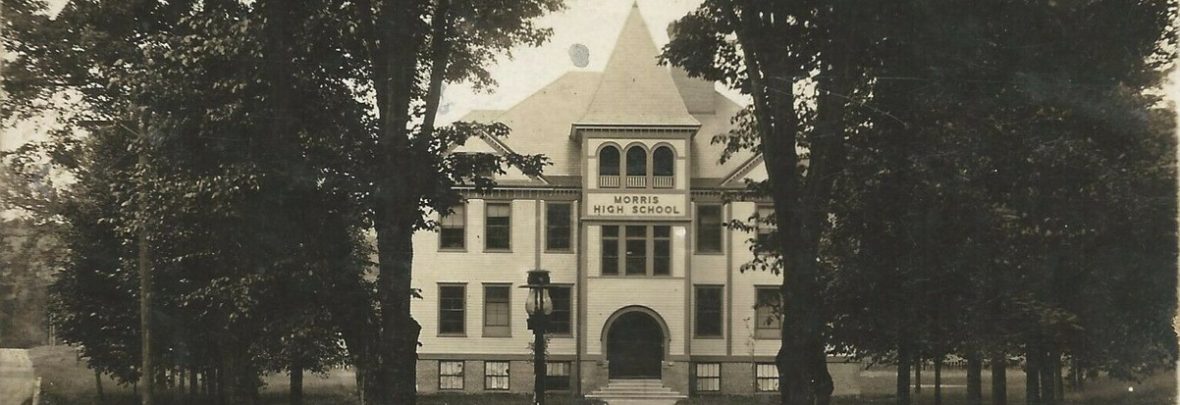by A. S. Avery, Morris Chronicle, September 30, 1874
The town of Morris has furnished some distinguished men as well as some notorious personages; either to the “manor born” or by long residence therein. Francis Rotch was one of the leading men in the State, as an agriculturist and breeder of cattle and sheep. At one time he was President of the New York State Agricultural Society and foremost in inaugurating town fairs when fairs meant something besides horse-racing. He became a resident of this town in 1830 and being a man of wealth his means were fully given for all public purposes, and his charities which were numerous and bountiful, are best known by his recipients. The poor of Morris miss him as much as any class of people. He died in 1874, aged 86 years, and an obituary was never fully written because no one here felt competent to award the need of praise his long and active life deserved.
Jacob K. Lull is the oldest man living in town who was born here, (aged 80 years). He was a successful businessman; a tanner and currier. He acquired a competency by his industry; raised a large family of children. In 1838 he was elected a member of the State Legislature, which position he filled with honor and credit.
Paschal Franchot was one of the first settlers of the town, coming here about 1789, via Cooperstown and Burlington, when the road was followed by marked trees. He was the first Supervisor of the town; elected County Clerk, and afterwards made Judge of the County, (what is now Justice of Sessions).
Thomas A. Filer was the first man to establish a select school approaching an academy in the course of study. John C. Morris was once Judge of the County. Nelson Dewey, Esq., sone of Ebenezer Dewey, Esq., was twice elected Governor of Wisconsin. Jesse C. Smith, Esq., a son of Dan Smith, was a man of influence, and for many years a public officer in the city of Brooklyn. The town has also been represented in the Legislature, by Hon. St. Paul Seely, Hon. C. A. Church (two terms). The State Senate has been represented by Col. A. M. Smith and Col. F. M. Rotch. Mr. Rotch was one of the best artists in the country. I happen to know of a circumstance which happened some years ago, when one of his water colored paintings was sold for $50, and the money donated to the poor. He died from the effects of a fever contracted in the swamps near Yorktown, Va., 1864. Edward Walker, youngest son of Stephen Walker, is a wealthy lawyer in the city of Detroit.
The United States Congress has been represented by Hon. S. S. Bowne and Hon. Gen. R. Franchot, who have been for the best part of their lives residents of this town. Dr. Walter Wing was a very successful physician. Dr. Wm. Yates was one of Jenner‘s first converts, and the first man to introduce vaccination, for small pox in America. At his death in 1857, an obituary of two columns in length was published in the New York Tribune. The Rev. Reuben Nelson (Methodist) was one of a large family of children who worked in Hargrave factory. It was here he lost his arm by being caught in a picker.
Dan Smith, another old settler, aided materially in the prosperity of the town in its early life, as a drover. By his purchases the farmers were able to get money enough to pay their taxes. Ansel C. Moore was a public officer for many years; a man of influence, and in business (mercantile) was decidedly successful. He was the first man to establish a banking house in town, which is to-day successfully carried on by his son and son-in-law under the name of A. G. Moore & Co. Andrew G. Washbon was a successful business man as agent for the B. W. & C. Factory Co. Upon reading the account of the firing on Fort Sumter he gave $100 to the first man who volunteered to go in defense of his country. And when the town was in straightened circumstances to raise its quota and bounties, he stepped forth and by his exertion and influence, the $44,000 in money was obtained. The Rev. Russell Wheeler came into this county in 1814. He first located in Unadilla, and afterwards was Rector of Zion Church. He was a very exemplary man, rather eloquent as a speaker, and in 1829 lived opposite the church in Morris. He died in 1861, aged 77 years. Joseph Bowne, the Quaker preacher, was one of the most eloquent speakers of his day. The “meeting house” was always full, and even crowded, when he was moved to speak. He wore the continental costume of the generation gone before. He was very sociable, well educated, and truly a good man, whose memory is cherished with reverence even to this day. He died in 1848, aged 70 years. Levi S. Chatfield was born in this town of “poor but respectable parents,” and rose to the honorable position of Attorney General.
There are scores of persons once residents of this town, who are worthy of “Honorable Mention,” but it is not our purpose to write autobiographies or obituaries, and we close the record and point with pride to the many public and good men who have spent a large portion of their lives in what is now the town of Morris.
Next week we will give a list of the school children of “Louisville,” in 1825-30, followed by some incidents and anecdotes of the times.
Excerpt from Morris, New York 1773-1923 by Joyce Foote, 1970
The previous text was taken directly from the book Morris, New York 1773-1923 by Joyce Foote, 1970. I made a few minor edits, but the content remains unchanged.
